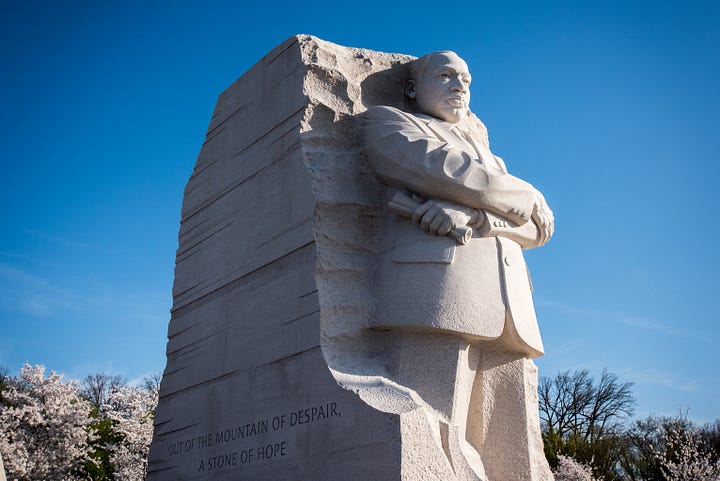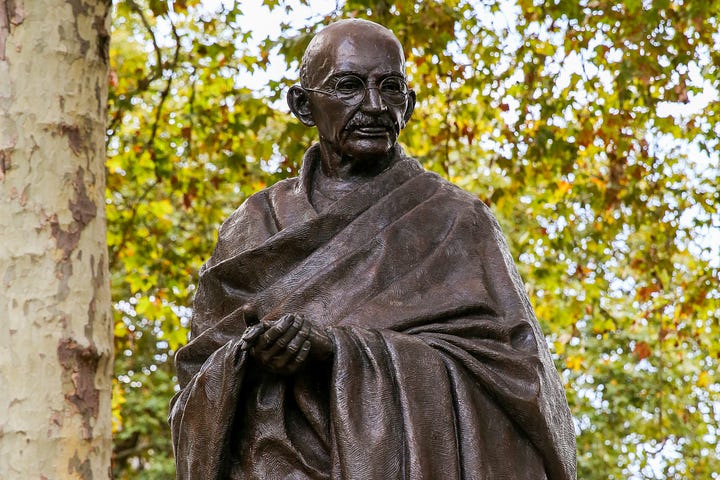Echoes of Non-Violence: How Gandhi's Legacy Influenced MLK
Discovering the Roots of Non-Violent Philosophy in the Struggle for Civil Rights


Today, our nation 🇺🇸 observes the birthday of Dr. Martin Luther King Jr, a man who brought so many people together with his power to inspire hope and healing. Having recently returned from a family trip to India, I wanted to share a lesser known aspect of MLK’s commitment to non-violent resistance as a tool for social change.
In 1959, Martin Luther King Jr. embarked on an eye-opening journey to India. It marked a significant moment in his life, as he was influenced by the teachings of Mahatma Gandhi. During this trip, King engaged in discussions with Indian people, spoke at public meetings and universities, and was widely covered by the Indian press. This exposure to Gandhi's homeland and principles contributed to a foundation on which King' established his vision for positive change in America.
Dr. King's visit included laying a wreath on Gandhi's ashes at Rajghat, meeting Gandhi's family and close associates, and observing the profound impact Gandhi's philosophy had on India. This trip was considered an important experience for King, who left India more convinced about the power of non-violent resistance.
The relationship between Gandhi and African American leaders also includes the influence of Reverend Howard Thurman, an important figure who connected the teachings of Gandhi with the Civil Rights Movement. Thurman's visit to India, Ceylon, and Burma (as they were known then) in 1935-36 as part of a delegation was a significant event. This delegation, known as the "Pilgrimage of Friendship," was instrumental in bringing Gandhi's philosophy of non-violence to the forefront of the civil rights struggle in the United States.
King's later life and work, partially influenced by Gandhi's teachings, embraced a broader vision of human rights. His dream evolved from a national to an international perspective, tackling issues like racism, poverty, and war as global concerns. He advocated for renewed reconstruction of American society and lead campaigns that addressed the needs of the poor across the globe.
As is the case for all humans, MLK and Gandhi had their flaws. They grappled with personal and philosophical challenges, and at times, their actions and words sparked controversy. Yet, it was their ability to learn and evolve from these challenges that truly shaped their legacy. Embracing their imperfections, they exemplified humanity's capacity for growth, forgiveness, and the relentless pursuit of truth and justice.
The story of Martin Luther King Jr. and Mahatma Gandhi isn't just about two iconic leaders or two nations. It's a testament to the universal power of peaceful resistance, a beacon of hope that continues to inspire generations to fight for justice and equity. King's pilgrimage to India wasn't just a visit; it was a confirmation, a deepening of his resolve, and a testament to the enduring legacy of two souls united by a shared dream of a better world.
Thank you for reading. If you like what you just read, please subscribe for more content. Consume at Once is about how to simplify a complex world being disrupted by technology. Any opinions or forecasts contained herein reflect the personal and subjective judgments and assumptions of the author only.



